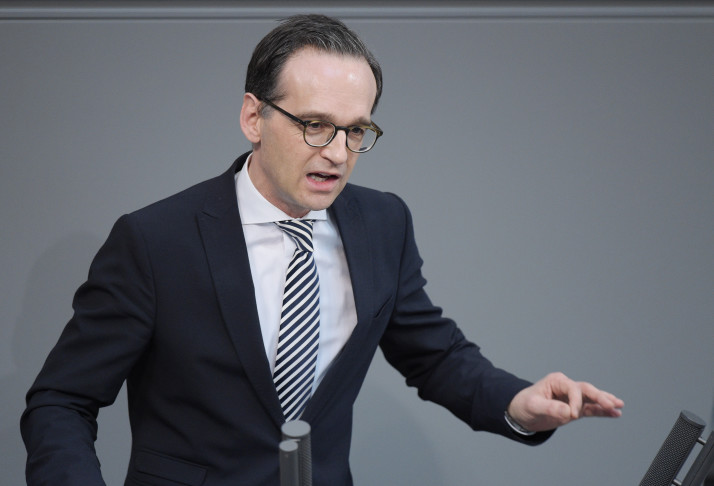German ministers welcomed an initiative agreed between U.S. President Donald Trump and European Commission President Jean-Claude Juncker to ease the threat of a trade war, with one describing it as a breakthrough and another saying it had won the EU time.
After a meeting with Juncker at the White House on Wednesday, Trump agreed to refrain from imposing car tariffs while they start talks on cutting other trade barriers.
The two also said talks would seek to “resolve” U.S. tariffs on steel and aluminum and Europe’s retaliatory duties, a step back from Trump’s import protections for U.S. metal producers.
“This is not yet the result we are aiming for but it has made a positive result in the whole discussion…on free trade or protectionism more likely than before,” Maas told a news conference in Seoul, extracts of which were broadcast on German radio.
“America and Europe are not opponents…We are partners and allies with common values and interests,” Maas said, adding it was good that the two would also work on unfair trade practices and on a reform of the World Trade Organization.
“The answer to America First can only be: Europe United,” he said.
German Economy Minister Peter Altmaier was even more enthusiastic, hailing the talks as a “breakthrough” that could avoid a trade war and save millions of jobs. “Great for global economy,” he tweeted late on Wednesday.
U.S. import tariffs of 25 percent on steel and 10 percent on aluminum imposed in March will stay in place during the talks and Trump said Europe had agreed to raise purchases of liquefied natural gas and lower trade barriers to American soybeans.
The DIHK chambers of Commerce gave a cautious welcome to what was agreed, saying however, that U.S. auto tariffs were not totally off the table.
Germany’s car industry, including BMW (BMWG.DE), Daimler (DAIGn.DE) and Volkswagen (VOWG_p.DE), accounts for some 800,000 jobs.
“The proposed solutions move in the right direction but a significant proportion of scepticism remains,” the DIHK said.
